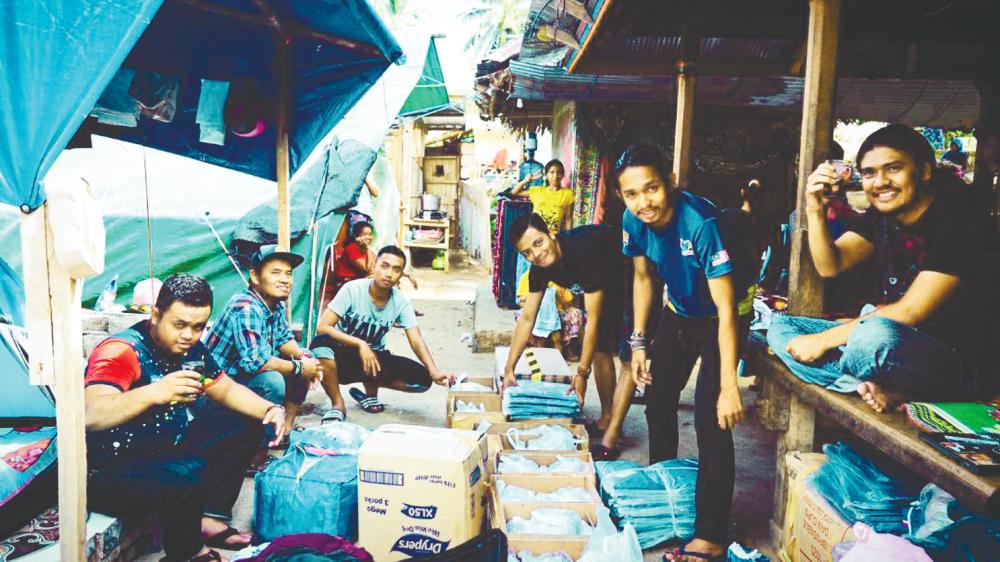The call to live the compassionate way of life is a noble one, but one that is rarely answered. For Mohammad Khairul Jamain, it was an easy choice as he discovered his passion for activism at an early age.
Now 26, Khairul is working as a project coordinator at 1Moment4Them, a humanitarian movement that is supported and carried out by youth.
There, his love for humanitarian efforts drives him to take part in, and organise, projects that result in the most permanent and life-improving effects.
What is your current project?
“It’s a three-month long project in Semporna, Tawau, Sabah. In conjunction with the holy month of Ramadan, we at 1Moment4Them are heading three projects for the benefit of the stateless children there.
“These projects include a Ramadan camp that benefits about 100 children, a bridge-building project that would help approximately 100 children, and a ‘cattle for Eid ul Fitr celebration’ that would help roughly 800 people.
“My main focus is the Independent Economic Industry Training, a three-month long programme that aims to benefit the stateless children in the area.”
How did you get into activism?
“I started in earnest in 2012, back in my college days. I started as an independent, and soon joined social enterprises. I was just following my friends at first, doing what we can after class.
“Because of my interest, I established Buku Jalanan Seri Manjung, a group that champions reading as a right of all individuals. I was then made the secretary of Persatuan Aktivis Sahabat Alam, an activist group that defends nature.
“After that, I decided to quit my job and travel the world while doing activism work wherever I go, until today, where I am the project coordinator at 1Moment4Them where I am paid to handle these humanitarian projects.”
How do you pick the projects you undertake?
“First, we assess the situation. I will personally go to the community, identify common issues, study the case, and find the best solution for the whole community; only then will I undertake the project. This is because I focus on impactful, effective and sustainable solutions.
“Most of the work I do is done with the help of a small group. This is to encourage the involvement of the community and make them more independent. It also reduces our footprint in the community.”
Can you give us an example?
“Take a look at my current project where we work with the stateless youth in Semporna. They don’t have [much] employment and even when they do get a job the pay is a measly RM400 to RM600. It does not make sense, and no one is taking steps to help them.
“So, we started the Independent Economic Industry Training, also known as Latihan Industri Ekonomi Mandiri (LIEM). The programme [brings] opportunities, and enables these stateless youth to open businesses.
“Our mission is to elevate the youth to the point where they can become examples in the community and ... generate a passive income every month.
“This project will go on for three months. That’s why we have to do our due diligence, and find the best solution from every angle.”
Why did you choose to become an activist?
“Before this, I was a traveller for three years. I did volunteer work wherever I went. From that experience I realised that activism and doing humanitarian work was my calling. I am confident that I could make a difference.
“The thanks and the smiles I get in return makes the whole thing worth it.”
Was it a sudden realisation or did it take time?
“Honestly, I was interested in activism and social work even before I started on my [journey]. But the scope of humanitarian work is vast. My travels helped me focus on not only doing what I want to do, but making it a reality.
“I have seen so many tragedies in my line of work. The experience made me more grateful for what I already have. Now I see that success is not measured by the size of one’s house or how luxurious one’s car is; it is measured by how much one can give back to the community.
“I believe that the next generation will be led by humanitarians, for what the youth wants more than anything else is a brighter future for everyone.”









